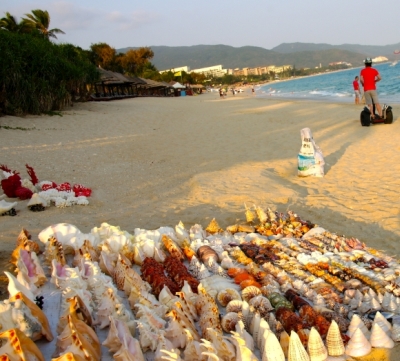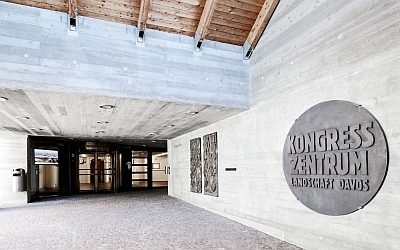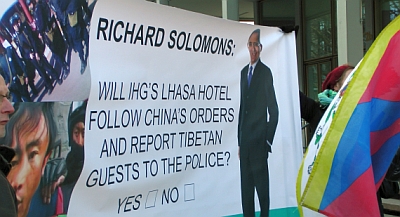
News & Stories
Dubai. In the Middle East, it's all about tomorrow. Yesterday has already been forgotten and everything and everybody strives towards new tourism records. In the very centre of the boom: Dubai. Six years after the Lehman bankruptcy, which overnight took the heat from the superlatives in the Middle East, the fever is back and it's hotter than ever. The shopping malls are full, the construction cranes again stretch out towards the sky, taxi queues are longer than ever and between the new city districts whole new four and six-lane roads have been built whilst on grass verges between the traffic, construction workers relax in the sun. It's just like in 2007 and early 2008. Hoteliers are also getting a little hot under the collar: How are they to escape the government-imposed growth programme? Sheikh Mohammed bin Raschid al Maktoum is currently pumping billions into the market. The decision to award Dubai Expo 2020 has also given the city a new boost. Dubai in May 2014 and three new hotels.
Doha. Qatar, the country with the world's highest per capita income, plans to spend between $40 and $45 billion on tourism by 2030 in order to increase by seven fold the tourist arrivals into the Gulf state, the chairman of the Qatar Tourism Authority recently said. One of the hottest plans to attract leisure tourism will be a 71-hectare zoo in Doha, including drive-through safaris and a seven-star resort set in mature trees.
Salzburg. Up to March, 2014, it has been the most guest-intensive winter for Tyrol – nevertheless this year, an overnight deficit of 5.9 percent remains in one of the most important Austrian holiday regions. Nearly all of the hotels in the lower-situated winter sports areas had already closed at the end of March. The hoteliers are now cutting investments.
Sanya. Not only is the city of Sanya on the South Chinese island of Hainan the beach paradise of the one-billion state, but it also attracts German-speaking hotel professionals. They all try to succeed on socially difficult terrain. In the meantime, hotels have sprung up like mushrooms. The tropical climate and the wide sandy beaches have made Sanya an attractive tourist destination since 2000. Society freaks know the city thanks to six "Miss World" elections, while others consider Sanya an important Chinese marine base. Fred Fettner met Austrian hotel managers in Sanya and encountered a world of numerous contradictions.
Madrid. Since 2008, Spanish urban hotels suffered dramatically while beach resorts increased profitability. The battle between cities, sun & sand is on.
Zurich. The convention business is an important mainstay of the Swiss tourism economy and accordingly, a great deal is currently being invested in conference centres and hotel beds. But, the market is tight and the competitive pressure is rising. Davos is not above all and not everywhere is the added-value from the mega conventions as high as it is there. However, the mega conventions themselves are even withdrawing from Davos. A significant investment backlog rules in many MICE centres in Switzerland while in contrast, the likely most spectacular new construction of a convention property has sprung up in Lausanne. A review.
Zurich/Burghausen. For the first time, the travel search engine Kayak.de will also integrate travel agency offers into the holiday search in addition to the offers by travel portals. The background for this is the consideration that many vacationers are informed at the travel agency and then book on the Internet.
Vienna. The annual destination ranking by the Austrian Hotelier Association produced new top destinations. However, it provides less of an upheaval within the Austrian tourism than a new calculation form.
Dubai. Dubai scored the highest average daily rate in the Middle East and Africa region in January this year, with ADRs rising 12.8 per cent to $308.64 from January 2013. ADR, meanwhile, achieved the highest levels of any January since 2008 and remains the main driver for the double-digit growth in RevPAR. Dubai's hospitality market has rapidly absorbed the influx of new supply and continues to perform exceptionally well. This also encourages investors' interest in this sector. Property prices could return to the 2008 level by the end of 2014, experts believes. They also believe a real estate bubble is far off. The International Monetary Fund has a different view.
Nothing new
Berlin. The hunger for expansion continues, after Asset Light now comes Asset Heavy once again; the growth of the online travel agents is a danger and the Chinese are also slowly becoming interested in the more unusual forms of hospitality. The 60 minute CEO Panel reduced it down to these four phrases at the 17th International Hotel Investment Forum. It is fascinating each year to see what magnet effect this event has. It cannot be the content of the conference. Moreover, it was equally tingling at the front door of the host, InterContinental Hotels in Berlin: Tibetans demonstrated there on Monday afternoon against a planned InterContinental Hotel Resort in Lhasa.






